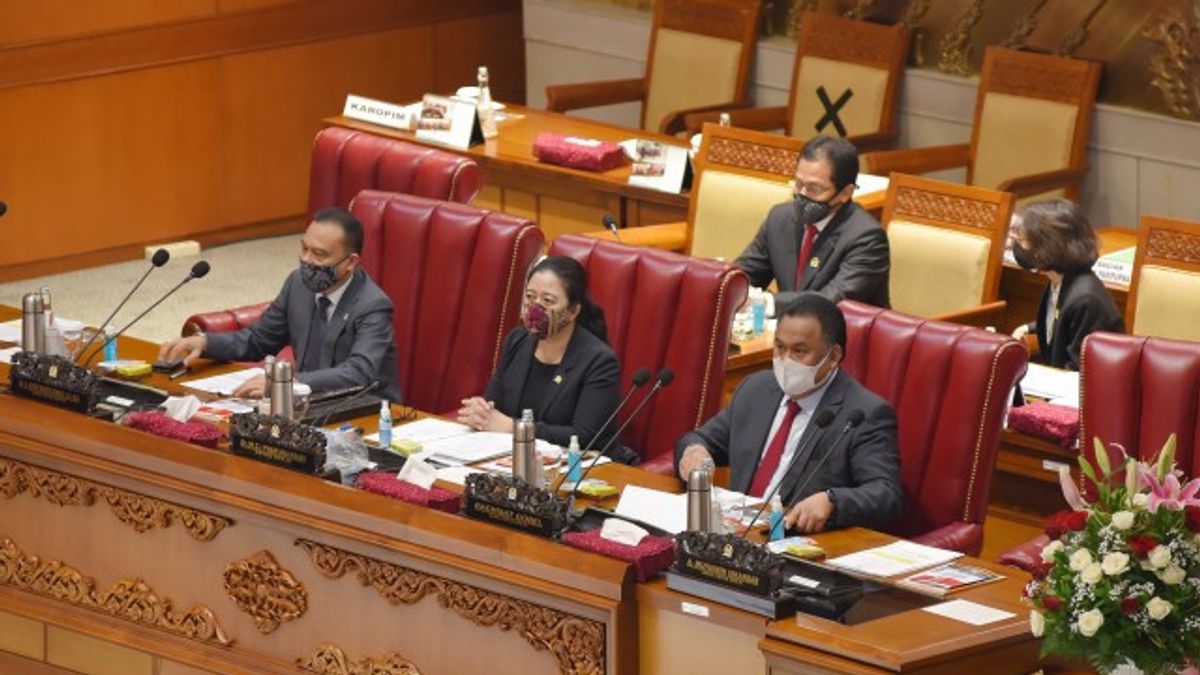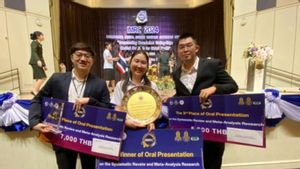JAKARTA - The DPR has passed the new Constitutional Court (MK) Law. Ratification related to the third amendment to Law No. 24 of 2003 concerning the Constitutional Court was taken at the DPR Plenary Meeting.
The decision was knocked by Deputy Speaker of the DPR, Sufmi Dasco Ahmad, as chairman of the meeting, after obtaining approval from all factions present. "Agreed," answered all the members of the council present, Tuesday, September 1.
Based on the records of the Secretariat General of the DPR RI which was conveyed by the Chairman of the DPR, Puan Maharani, the DPR Plenary Meeting today was attended by 495 members of the DPR. Where 111 board members are physically present in the plenary courtroom and 280 members are present virtually.
Launching from Antara, Minister of Law and Human Rights Yasonna Laoly said that the ratification of the new Law (RUU) of the Constitutional Court will be a juridical basis in determining the requirements to become a constitutional judge. Both in terms of the appointment and dismissal of Constitutional Justices that are better proportionally and constitutionally.
"This is a juridical basis regarding the requirements to become a constitutional judge. However, judicial power also needs to be regulated in order to prevent judicial tyranny in a democratic government administration system," said Yasonna.
Plenary of the DPR RI Approves the Draft Law on the Constitutional Court to Become Law https://t.co/aJ5JX8aAA2 pic.twitter.com/ObCghGzb6D
- DPR RI (@DPR_RI) September 1, 2020
Whereas previously, the government had submitted five proposals related to the deliberation of the Constitutional Court Bill. The proposal is regarding the minimum age limit and maximum age of constitutional judges, requirements for constitutional judges who come from within the court of the Supreme Court, and the time limit for dismissal of constitutional judges due to the end of their term of office.
In addition, the government has also made proposals regarding members of the Honorary Council of the Constitutional Court who come from academics with a background in law and the legitimacy of the constitutional judges who are currently serving in relation to the amendment of the Law.
The English, Chinese, Japanese, Arabic, and French versions are automatically generated by the AI. So there may still be inaccuracies in translating, please always see Indonesian as our main language. (system supported by DigitalSiber.id)













